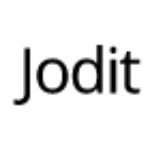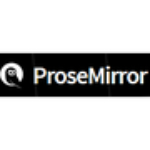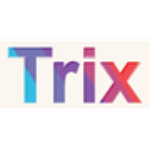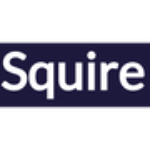TechnologyCounter provides genuine, unbiased real user reviews to help buyers make informed decisions. We may earn a referral fee when you purchase through our links, at no extra cost to you.
List of Best Wysiwyg Software
Showing 1 - 11 of 11 productsTinyMCE is a web-based text editor that enables users to easily create and edit content on their websites. With a user-friendly interface and a vast array of features, TinyMCE simplifies the process of content creation and makes it accessible to all,...Read TinyMCE Reviews
WireEditis a ultimate solution for all your network editing needs. Streamline your network configuration and management with its user-friendly interface and powerful functionalities. Say goodbye to endless hours of manual editing and hello to efficie...Read WireEdit Reviews
Jodit is a dynamic is a text editor that is designed to simplify your writing process. With its user-friendly interface and innovative features, Jodit allows you to effortlessly create and edit content for any platform. Say goodbye to complicated too...Read Jodit Reviews
Maqetta is a web-based visual authoring tool for creating dynamic and responsive user interfaces, without the need for coding. With its intuitive drag-and-drop interface, Maqetta allows users to design stunning websites and applications, empowering t...Read Maqetta Reviews
Summernote the revolutionary text editor that will change the way you create and edit content. Say goodbye to clunky, outdated interfaces and hello to a seamless, intuitive writing experience. With an array of features designed to enhance your produc...Read Summernote Reviews
Quill, the ultimate writing tool for all your needs. This innovative software is designed to enhance your writing experience with its user-friendly interface features. Whether youre a professional writer, student or businessperson, Quill has got you...Read Quill Reviews
Amaya is a web browsing experience that has been taking the internet by storm. Powered by advanced technology and innovative features, Amaya provides users with a seamless and hassle-free way to surf the web. Say goodbye to the traditional browsing m...Read Amaya Reviews
ProseMirror is a versatile and dynamic text editing software designed to streamline the process of creating and editing written content. With its intuitive and user-friendly interface, it empowers writers to efficiently craft and format their ideas w...Read ProseMirror Reviews
Aloha Editor, the ultimate web-based editing tool that simplifies and enhances your content creation experience. With a user-friendly interface and a wide range of features, Aloha Editor allows seamless editing, formatting, and collaboration on any d...Read Aloha Editor Reviews
Trix is a solution for all your business needs. This powerful software offers a wide range of features and tools that are specifically designed to help businesses of all sizes streamline their processes and boost productivity. Say goodbye to tedious...Read Trix Reviews
Squire is a latest software revolutionizing the way businesses manage their operations. With its user-friendly interface capabilities, Squire streamlines processes, boosts productivity, and enhances overall efficiency. Say goodbye to complicated and...Read Squire Reviews
Jodit is a dynamic is a text editor that is designed to simplify your writing process. With its user-friendly interface and innovative features, Jodit allows you to effortlessly create and edit content for any platform. Say goodbye to complicated too...Read Jodit Reviews
Squire is a latest software revolutionizing the way businesses manage their operations. With its user-friendly interface capabilities, Squire streamlines processes, boosts productivity, and enhances overall efficiency. Say goodbye to complicated and...Read Squire Reviews
Quill, the ultimate writing tool for all your needs. This innovative software is designed to enhance your writing experience with its user-friendly interface features. Whether youre a professional writer, student or businessperson, Quill has got you...Read Quill Reviews
Summernote the revolutionary text editor that will change the way you create and edit content. Say goodbye to clunky, outdated interfaces and hello to a seamless, intuitive writing experience. With an array of features designed to enhance your produc...Read Summernote Reviews
- What Is WYSIWYG Software?
- Top Reasons Why Businesses Need WYSIWYG Software?
- What Are the Top Key Features of WYSIWYG Software?
- What Are the Top Benefits of WYSIWYG Software?
- What Are the Steps to Choose the Right WYSIWYG Software?
- What Are the Types of WYSIWYG Software for Different Industries?
- What Are the Technology Trends for Best WYSIWYG Software?
- What Are the Deployment Options for WYSIWYG Software?
What Is WYSIWYG Software?
WYSIWYG software refers to a specific category of computer programs that have been developed with the purpose of enabling users to generate documents that closely resemble the final output.
WYSIWYG software provides users with a visual representation, sometimes referred to as a "canvas," which encompasses various elements such as text, graphics, and other components, mirroring the appearance of the completed document. This implies that the output on the screen corresponds directly to the final result, requiring no additional formatting or effort. In contrast to conventional word processors or text editors, WYSIWYG software lacks a discernible coding interface, presenting the document in its final visual form.
Various varieties of best WYSIWYG software are commonly encountered, encompassing web page editors, graphics tools, and desktop publishing software. Web page editors enable users to generate web pages without the need for proficiency in HTML code. This is achieved by the utilization of a user-friendly interface that facilitates the dragging and dropping of objects, selection of menus, and clicking of buttons.
In addition to its sophisticated layout and design features, desktop publishing software often encompasses a wide range of functionalities similar to those found in word processing software. In contrast, graphics programs are utilized for the purpose of generating uncomplicated images, designs, logos, and several other graphical elements.
In essence, WYSIWYG web software refers to a category of computer programs that include a tangible interface, enabling individuals to generate papers, pictures, and web pages devoid of any prerequisite knowledge in coding. This feature allows users to conveniently preview the final output on the screen without any further effort.
Top Reasons Why Businesses Need WYSIWYG Software?
1. The utilization of top WYSIWYG software facilitates the process of designing documents, resulting in enhanced efficiency and expedited production when compared to manual formatting methods.
2. Designers have the ability to produce papers that exhibit a high level of professionalism and maintain a uniform formatting style.
3. It is imperative to thoroughly understand the page layout and comprehensively grasp the content of the text prior to its publication.
4. WYSIWYG software effectively mitigates problems such as inaccurate font sizes and the presence of several spaces preceding the conclusion of a sentence.
5. One advantage of utilizing modern coding techniques is the increased ease and efficiency in creating and modifying material as compared to traditional coding methods.
6. This section aims to present convenient methods for the automated inclusion of various elements such as logos, headings, footers, photos, and other relevant components within documents.
7. In order to enhance operational efficiency, it is imperative to effectively address the dynamic design requirements of clients.
8. One objective is to enhance efficiency in document creation and minimize expenses related to design and manufacturing.
9. Facilitate the provision of extensive customization options for papers to accommodate diverse individual requirements.
10. One advantage of having greater control over the look and feel of documents is the ability to customize their appearance to meet specific requirements or preferences.
11. One notable feature is the seamless integration of animations, effects, audio, video, and various other elements into the platform, facilitating their incorporation with minimal effort.
12. WYSIWYG web software exhibits compatibility with several operating systems, hence enabling its utilization across diverse computer platforms.
13. One benefit of enhancing document aesthetics is the potential to enhance the client experience by making documents more visually appealing and conveying a sense of professionalism.
14. The interface should be designed in a manner that is both user-friendly and intuitive for users.
15. Enhance the efficiency and effectiveness of the document authoring process by simplification and streamlining.
What Are the Top Key Features of WYSIWYG Software?
1. Drag and Drop Interface: The platform enables users to conveniently rearrange design elements inside a canvas without the requirement of intricate tools or coding.
2. Automated Layout Elements: Numerous software applications employ grid and column-based arrangements, enabling users to strategically allocate priority to specific materials and objects inside designated regions.
3. Image Editing and Insertion: Effortlessly import and alter photographs, illustrations, and other visual representations, and seamlessly incorporate them into a design.
4. Responsive Design: Grids and other design elements possess the capability to adapt and accommodate varying sizes and screens.
5. Customizable Templates: Develop a fundamental project structure that may be readily employed in subsequent design endeavors. In this section, we will discuss the many styles and themes that are commonly found in literature. Consistent styling refers to the practice of maintaining a uniform visual appearance throughout a design or interface. It involves ensuring that all elements, such as fonts, colors, and layouts, adhere to a predetermined set of guidelines.
6. User Experience: This approach promotes a cohesive and harmonious user experience. In addition to consistency, the ability to adjust theme elements allows for the modification of specific design elements within the established stylistic framework.
7. Third-Party Widgets: Incorporate supplementary elements alongside widgets developed by external developers.
8. Code-Free Development: The ability to create designs without the necessity of manually writing HTML or CSS code.
9. Preview Mode: Observe the ultimate appearance of the design prior to its dissemination.
10. Export Options: The export functionality allows for the conversion of projects into several file formats or as HTML code.
What Are the Top Benefits of WYSIWYG Software?
1. Increased Productivity: WYSIWYG software facilitates the expeditious and effective creation and formatting of documents, eliminating the need for manual adjustment of formatting or coding. This approach enables users to optimize their time and concentrate on the substance of their work rather than the formatting aspects.
2. Enhanced User Experience: WYSIWYG web software presents users with a simplified and user-friendly interface that facilitates convenient access to formatting choices and pre-installed functionalities.
3. Improved Design: WYSIWYG software facilitates the creation of aesthetically pleasing documents by eliminating the need for manual coding or design expertise.
4. Automated HTML Coding: WYSIWYG software is designed to automatically generate code for websites, emails, and digital documents, hence eliminating the need for users to possess knowledge of HTML or CSS in order to create visually appealing documents.
5. Improved Collaboration: The best WYSIWYG software offers real-time collaboration functionalities that enable users to collaboratively work on a shared document irrespective of their geographical location.
6. Easier Distribution: WYSIWYG (What You See Is What You Get) software facilitates the seamless dissemination of documents and the dissemination of content across many devices and platforms.
7. Increased Security: WYSIWYG software incorporates inherent functionalities that safeguard documents from any hostile attacks, hence guaranteeing the utmost security of information.
What Are the Steps to Choose the Right WYSIWYG Software?
1. Determine the underlying objective necessitating the utilization of a Wysiwyg program. This approach facilitates the process of selecting software by eliminating options that lack the requisite capabilities and tools for the intended goal.
2. Conduct an investigation into the various features that are provided by each What You See Is What You Get (WYSIWYG) program. When evaluating software, it is important to take into account various factors, including but not limited to, user-friendliness, compatibility with different operating systems and digital devices, availability of support services, and overall cost.
3. Examine critiques of several what-you-see-is-what-you-get (WYSIWYG) software applications. Reviews can offer valuable input from users, providing insights into their experiences with the software and its alignment with their requirements.
4. Evaluate the software using a trial version. The majority of best WYSIWYG software packages offer a complimentary trial option, enabling users to download and utilize the software for a restricted duration. This will enable users to have a more comprehensive understanding of the product and evaluate its compatibility with their requirements.
5. In order to make an informed decision, it is essential to evaluate the features of each software platform in relation to your specific requirements. It is imperative to ensure that the software provides all the necessary features and functionalities required for the successful completion of the project.
6. It is imperative to ascertain your financial resources and ensure the selection of software aligns with both your functional requirements and financial constraints.
7. It is recommended to acquaint oneself with the user interface. The utilization of WYSIWYG software may be intuitive, although acquiring proficiency in its features and functions may need a certain amount of time and effort.
8. Select the appropriate top WYSIWYG web software. After careful consideration of all the specified requirements and conducting thorough research, it is recommended to choose the program that aligns most effectively with your specific demands.
What Are the Types of WYSIWYG Software for Different Industries?
There are a variety of WYSIWYG software options available for different industries, depending on what type of project or task you are trying to complete. For example:
• Web Design: HTML Editors such as Adobe Dreamweaver, CoffeeCup HTML Editor, Notepad++, and BlueGriffon.
• Desktop Publishing: Adobe InDesign, Serif PagePlus, Microsoft Publisher and QuarkXPress.
• Image Editing: Adobe Photoshop, GIMP, Corel Draw, and Paint Shop Pro.
• Animation: Toon Boom Storyboard Pro, Adobe After Effects, and Autodesk 3ds Max.
• Video Editing: Adobe Premiere Pro, Apple Final Cut Pro, and Avid Media Composer.
• CAD/CAM Design: Autodesk AutoCAD and ZW3D.
• Game Design: Unity and Unreal Engine.
What Are the Technology Trends for Best WYSIWYG Software?
The best WYSIWYG (What You See Is What You Get) software has become increasingly integrated and sophisticated over the past decade. Some of the primary technology trends driving improvements to top WYSIWYG software are:
1. Improved User Interface: Developers are consistently engaged in enhancing the WYSIWYG user interface by optimizing visual aesthetics and enhancing the integration of design components.
2. Cloud-Based Platforms: The utilization of WYSIWYG (What You See Is What You Get) platforms is progressively shifting towards cloud-based systems, thereby enabling users to conveniently access design components and material from any computer that is connected to the internet.
3. Automated Workflows: Automated workflows are gaining popularity in the realm of WYSIWYG software, as they effectively diminish the temporal and cognitive demands associated with specific jobs.
4. Omnichannel Publishing: The utilization of omnichannel publishing features allows users to efficiently generate content for several channels simultaneously. The significance of this function is growing as an increasing number of firms seek to provide content for various platforms.
5. Content Personalization: WYSIWYG software has evolved to possess the ability to personalize content, hence enhancing its efficacy in targeting distinct client categories. In general, the best WYSIWYG software is progressively evolving into a more advanced and comprehensive software application, providing users with a diverse array of features and functionalities.
What Are the Deployment Options for WYSIWYG Software?
The available deployment alternatives for WYSIWYG software encompass on-premise installation, hosted software-as-a-service (SaaS), or a hybrid method that integrates both on-premise and cloud-based installations.
The process of on-premise installation entails the direct installation of software onto a computer situated within the physical premises of the business. In the case of bigger enterprises, this may require installation on an internal enterprise server.
Hosted Software-as-a-Service (SaaS) refers to the arrangement in which a third-party provider hosts and manages the What-You-See-Is-What-You-Get (WYSIWYG) software in a cloud-based environment.
The hybrid solution is a combination of on-premise and cloud-based deployment choices, enabling enterprises to retain essential components of the WYSIWYG application on-premise while leveraging supplementary features and capabilities from the cloud.











